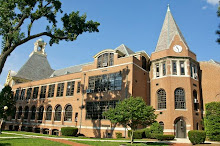First, all testing is a form of “assessment.” We assess what students have learned. Of course we do. Learnia is a type of “formative assessment.” What is that?
Two definitions, according to FairTest.org:
“Summative assessment is the attempt to summarize student learning at some point in time, say the end of a course. Most standardized tests are summative. They are not designed to provide the immediate, contextualized feedback useful for helping teacher and student during the learning process. High quality summative information can, of course, shape how teachers organize their courses or what schools offer their students.
By contrast, formative assessment occurs when teachers feed information back to students in ways that enable the student to learn better, or when students can engage in a similar, self-reflective process. If the primary purpose of assessment is to support high-quality learning, then formative assessment ought to be understood as the most important assessment practice.”
In simpler terms, Learnia allows teachers to see how students are doing during teaching/learning. It gives feedback on specific areas within subjects – showing what needs more attention and what is being mastered. And it shows this on an individual student basis, collecting learning data over time. So instead of just getting a score of 000 or “Proficient” on a test, the teacher can see that Johnny is doing better with decimals but not with fractions. (That’s a super-oversimplication -- in reality the results are much more precise and detailed.)
NJASK or those other summative assessments may be great for drawing lines in the sand and evaluating districts or schools from 30,000 feet, in order to assign funding or populate magazine rankings, but formative assessments such as Learnia are much more useful in terms of teaching and learning…which is what we’re here for, right?
Blogged with the Flock Browser






No comments:
Post a Comment